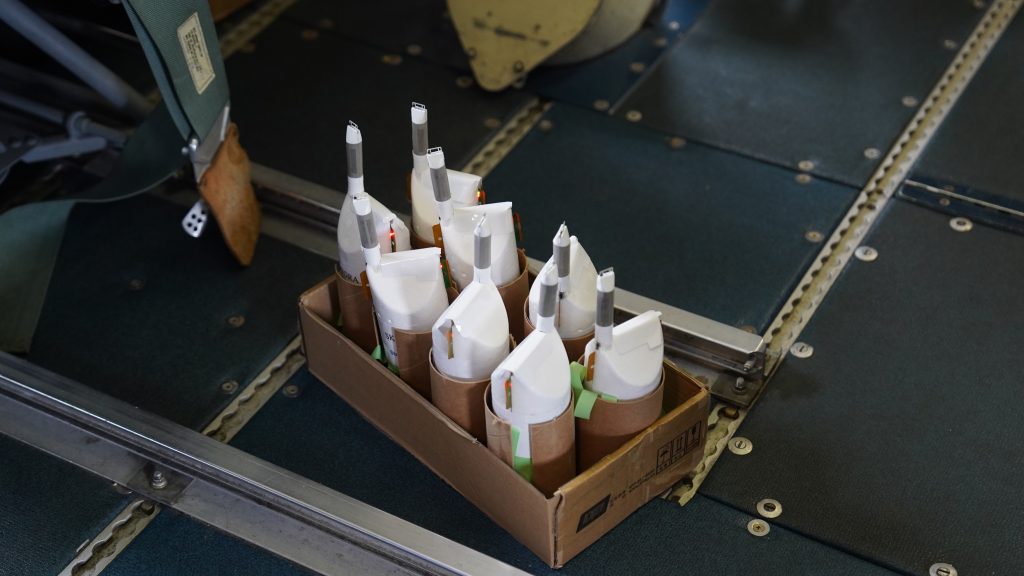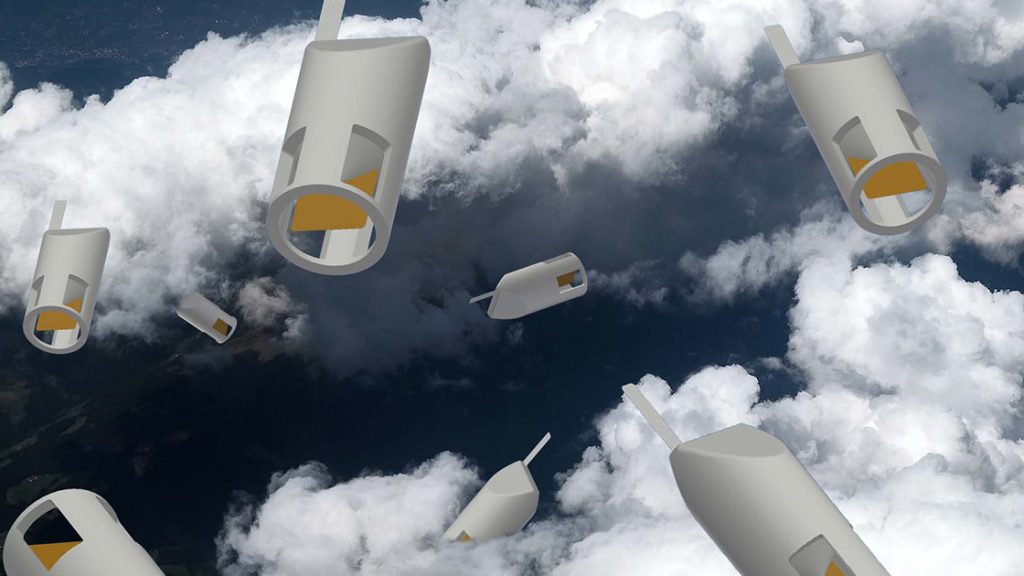As Hurricane Rafael developed in the Caribbean, AOML researchers were inside the storm testing the newest experimental hurricane observation instrument: the Skyfora StreamSonde. The 2024 hurricane season marks the first year that Skyfora’s StreamSondes were released in high volumes by NOAA’s Hurricane Hunters for research and testing with a total of 91 sondes released. These sondes are the newest addition to NOAA’s hurricane hunting toolbox, giving scientists the ability to gather more observational data from within a storm. These sondes will be released alongside dropsondes, airborne expendable bathythermographs, and uncrewed aircraft systems to gather real-time data from inside the storm. By experimenting with emerging technologies, NOAA aims to pioneer advancements that revolutionize hurricane research technology, ensuring more accurate forecasting and enhanced understanding of storm dynamics.
Much like dropsondes, StreamSondes are released from the bottom of the NOAA P-3 Hurricane Hunter aircraft to collect atmospheric measurements as they fall through the storm. However, StreamSondes are incredibly light, weighing only 14 grams. This allows them to fall slowly through the atmosphere at speeds of only 5 meters/second, eliminating the need for a parachute. Their slower descent rate allows them to remain aloft for extended periods of time, providing researchers with a greater volume and greater detail of atmospheric data.

The small size and lightweight design of StreamSondes also allows researchers to deploy them in “swarms”. These swarms refer to the rapid deployment of multiple StreamSondes at once, which provides researchers with a greater volume of data and gives forecasters a better overall picture of the storm’s behavior and strength. Since they are lightweight and compact, researchers can drop many individual sondes simultaneously, at a maximum rate of 50 within a 1 minute, providing a dense array of measurements in a concentrated area over a short period of time. Inside Hurricane Rafael, 20 Skyfora StreamSondes were launched to gather observations and test the new equipment. As they fall through the atmosphere, the sensors inside the StreamSondes measure conditions such as pressure, temperature, humidity, and wind, and relay this real-time data to scientists onboard the aircraft.

Streamsondes are the latest innovative addition to NOAA’s hurricane hunting research toolbox. The deployment into Hurricane Rafael marks the first time that scientists will be able to gather such a high volume of data from inside the storm -a significant leap forward in real-time hurricane data collection. These instruments allow scientists to obtain a detailed and comprehensive view of a hurricane’s structure and behavior, capturing even more atmospheric measurements to better understand how hurricanes develop and intensify. By experimenting with emerging technologies like Skyfora StreamSondes, NOAA aims to pioneer advancements that revolutionize hurricane research technology.
